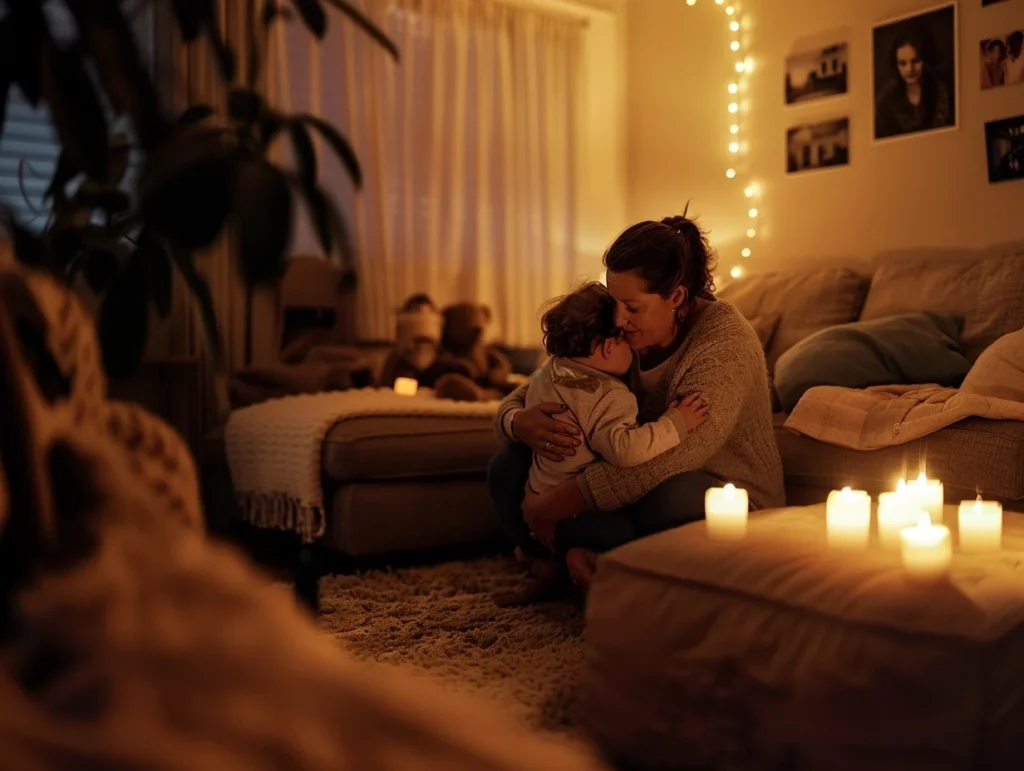
Raleigh Child Custody Lawyers

If you are facing a separation or a divorce and you and your spouse have children who are minors, your greatest concern is most likely issues related to custody and support. Fortunately, the majority of these issues are resolved outside of a courtroom through a child custody agreement, saving you money and stress-free.
Our Raleigh child custody attorneys will put our experience and knowledge to work for you to make the process simple and stress-free while still helping you meet your goals for your case.
Understanding Child Custody in North Carolina
Child custody is a critical aspect of family law in North Carolina, and understanding the laws and regulations surrounding it is essential for any parent going through a separation or divorce. In North Carolina, child custody refers to the legal and physical care of a minor child.
The state’s child custody laws prioritize the best interests of the child, ensuring their physical, emotional, and psychological well-being. When parents separate or divorce, they must establish a child custody arrangement that outlines the responsibilities and rights of each parent. This arrangement can be agreed upon by the parents or determined by a court if an agreement cannot be reached.
Resolving Child Custody and Child Support
While most people think of long, drawn-out courtroom litigation to resolve child custody and child support payments, oftecn, we can achieve a satisfactory agreement outside of a courtroom. Through and negotiation, both parties can be satisfied with a binding agreement for custody, avoiding an expensive, often contentious battle.

In some cases, court is necessary, but often, this can be beneficial to both the parents and the children. Our child custody lawyers will work to ensure a straightforward child custody case that protects your family from a vicious fight or exorbitant fees.
In addition to custody, we understand that child support needs to be a part of the divorce settlement. Whether you are going to be the primary custodial parent or not, child support should be resolved in way that complies with North Carolina law, protects the rights of both parties, and ensures the children are appropriately provided for.
Steps to a More Successful Child Custody Negotiation
While our team of Raleigh child custody lawyers do everything we can to help you meet your goals, you play an important role in this process, too. Understanding and addressing child custody issues is crucial for a successful negotiation. For an improved outcome that is beneficial to both you and your children, we’re sharing some steps to guide you through the process.
Consult with your Raleigh Divorce Attorney
Explain the circumstances of your separation to your attorney and address your concerns about child custody and support. Discuss your goals and what would work best for you and your children, including school, activities, and holidays. Also, bringing tax information and pay stubs will make it easier to consider expectations about support and custody.
It’s important to note that while North Carolina has child support guidelines, you can agree to any amount. The courts will accept your agreement assuming it is properly formalized and the amount is sufficient to properly care for minor children. A child custody lawyer can provide clarity on these legal expenses during an initial consultation.
Choosing Custodial Agreements or Consent Orders
There are two main options to formalizing custody agreements: custodial agreement or consent order.
Custodial agreements are contracts between the two parents that lay out the agreed upon terms. However, these aren't legally binding and can be changed or ignored in the event of a custody lawsuit. These tend to be suited for amicable, collaborative divorce where both parties are on the same page.
Consent orders are court-ordered rulings on custody and support and can't be changed without proof of a substantial change in circumstances. They carry the penalty of contempt of court for violations, which are much more serious than any consequences for violating contractual custody provisions.
Consider Whether the Other Party Will Agree
If you know the other party will never agree to your custody goals, is untrustworthy, or has issues affecting their parenting ability (such as drug abuse or mental health issues), it would be beneficial to skip the time and resources needed for a negotiation and move straight to filing a custody suit. Our child custody attorneys will work with you to determine the best course of action.
If You Are Going to Negotiate, Send the Complete Proposal
Before sending a proposal, it should be complete and ready to sign. This eliminates confusion, misunderstandings, or even hostility that can come from trying to negotiate a partial contract. A letter from your custody lawyer that includes the deadline should accompany the proposal.
If You Are Filing a Child Custody Lawsuit, Prepare and Gather Information
Work closely with your attorney in the planning, preparation, and initiation of any child custody cases. You should be working on gathering school records, health records, witness statements, photographs, and any other relevant information.
Formalize All Agreements
Whether you're the payor or recipient of child support, the support agreement needs to be formalized. This protects you from back payments and legal problems as the payor, and if you are the recipient, a formal, legal agreement ensures consistent support and ramifications if it's not paid.
Focus on Your Kids
During this process, it is essential to focus on your child's life and well-being and not get too wrapped up in the legal process or the stress associated with it. Consider some family or children’s counseling to help them discuss and deal with the changes in their lives or issues that are affecting them. Spend extra time with them.
Types of Child Custody Arrangements
There are several types of child custody arrangements in North Carolina, each designed to cater to the unique needs of the child and the family. These include:
Joint Custody
Both parents share legal and physical custody of the child, making joint decisions about the child’s life. This arrangement promotes active involvement from both parents.
Sole Custody
One parent has primary physical and legal custody of the child, while the other parent may have visitation rights. This is often chosen when one parent is deemed more capable of providing a stable environment.
Joint Legal Custody
Both parents share decision-making authority regarding the child’s upbringing, but one parent may have primary physical custody. This allows both parents to have a say in important matters.
Physical Custody
The parent with physical custody has the right to have the child live with them. This can be either sole or joint, depending on the arrangement.
Child Custody Laws and Regulations
North Carolina’s child custody laws are governed by the North Carolina General Statutes, specifically Chapter 50, Article 13. These laws emphasize the importance of active parental involvement and encourage parents to work together to establish a child custody arrangement that promotes the child’s best interests. When determining child custody, the court considers various factors, including:
The child’s age and needs
The parents’ work schedules and ability to care for the child
The child’s relationship with each parent
The parents’ ability to cooperate and communicate effectively
These factors help ensure that the custody arrangement supports the child’s overall well-being and stability.
Child Custody and Relocation
When a parent with primary custody wishes to relocate, they must consider the potential impact on the child and the other parent’s rights. In North Carolina, the relocating parent must provide written notice to the other parent, and the court may consider the relocation when determining child custody. The court’s primary concern is the child’s best interests, and they may consider factors such as:
The reason for the relocation
The impact on the child’s relationship with the other parent
The child’s needs and well-being
Relocation can complicate child custody matters, making it essential to consult with an experienced child custody attorney. They can help navigate the complexities of child custody laws and regulations in North Carolina, ensuring that the custody arrangement prioritizes the child’s best interests and protects your rights as a parent.
Schedule a Consultation with Our Raleigh Child Custody Lawyers
Let your attorney handle the legal work.
Every child custody and child support claim is different and requires specific advice from an experienced child custody attorney. Children are always the most important issue in every divorce. Protecting their future and your rights are our #1 priority.
To schedule a consultation regarding child custody or support, please call us at (919) 301-8843 or fill out the form below.


